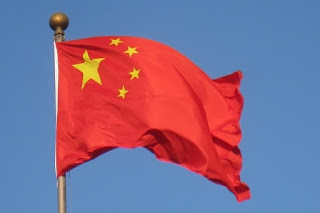China’s growing presence in Africa is one of the current biggest stories now, but even seasoned analysts cannot decide whether this booming relationship is good or bad for Africa!
Critics say Chinese strategy is entirely self-promotional, aimed at maintaining access to Africa’s precious mineral resources even when that means propping up odious governments.
China’s supporters say the Asian superpower is strictly neutral and business-oriented, preferring to generate economic growth not a dangerous dependency on aid.
China has certainly been contributing to Africa’s economic growth, both in terms of trade and with building infrastructure. All over the continent, it has built roads, railways, ports, airports, and more, filling a critical gap that western donors have been shy to provide and unblocking major bottlenecks to growth.
As the poster child for economic growth in recent decades, China has been increasingly keen to spread its wealth and influence around. Even though the country is suffering from a slowdown and expected to achieve “only” single-digit growth rate in the coming years, it remains one of the fastest-growing economies in the world. Its success has been, in part, the result of it being the recipient of huge amounts of foreign direct investment itself.
As China gradually embraces the roles and responsibilities of the world’s biggest economy as well, it is increasingly reversing that flow of cash and is expected to soon surpass the U.S. as the largest investor in other countries.
The inauguration of the China-led Asian Infrastructure Investment Bank, a rival to the World Bank and International Monetary Fund, is a sign of that, with its $100 billion in financial firepower, as is the new China-Pakistan Economic Corridor (CPEC), which will run from Gwadar in Pakistan to China’s western Xinjiang region, supported by a historical agreement of over $46 billion.
Indeed, the amount of investments made by China abroad is estimated to be $531 billion in outward foreign direct investment, with 4 percent of it—$22 billion—going to investments in natural resource extraction, finance, infrastructure, power generation, textiles, and home appliances in Africa.
That’s a small sum at first glance, but its economic impact to the region is both huge and far-reaching, especially in Sub-Saharan Africa, with the biggest investments made in Nigeria, Sudan, South Africa, and Angola.
In addition to investment projects, China has quickly become the continent’s biggest trading partner, with trade volume of $166 billion in 2014. This is likely to continue to increase and reach an estimated $1.7 trillion by 2030. But despite the substantial investments, most of them have been routinely cast as detrimental to Africa’s overall competitiveness.
The projects are dependent on deals made at the highest political levels. They lack competitive and transparent bidding processes, and most of the work force employed at these ventures has been Chinese. Promises of job creation have not been fulfilled. Further, when Africans are hired, local rules and regulations are often flouted, leading at times to poor safety.
For instance, at Chinese-run mines in Zambia’s copper belt, employees must work for two years before they get safety helmets. Ventilation below ground is poor, and deadly accidents occur almost on a daily basis.
More frequently, jobs are lost to Chinese employees, who are ferried in project by project. For example, the growing Chinese presence in South Africa may have cost the country 75,000 jobs from 2000 to 2011.
In Nigeria, the influx of low-priced Chinese textile goods has caused 80 percent of Nigerian companies in this industry to close.
Africans’ impression of Chinese firms could also be shaped by illegal practices carried out by them.
For example, by law, mining on small plots of 25 acres or less is restricted to Ghanaian nationals. However, many Chinese continue to explore for gold in conjunction with local landowners, even though regulations have made it clear that such practice is illegal. The result: Many Africans see themselves to be exploited by the newcomers.
Perhaps making matter worse, the kinds of goods that the two partners trade with each other have done little to change such perception.
Whereas China buys from Africa mainly natural resources—minerals and metals—African countries import primarily the finished results, ranging from machinery and electrical goods to plastics and rubber.
Such an arrangement could benefit both parties, but it’s more often seen as China exploiting Africa’s natural resources to feed its need for industrial output. At the same time, by exporting cheap—and often shoddy—manufactured goods to African countries, local companies not only become less competitive but they also grow increasingly dependent on China.
Recent research has also suggested that the Chinese presence has failed to bring significant skill developments, adequate technological transfer or any measurable upgrade to the productivity levels to this part of the world.




So true!
Which way?
Hnmmm!